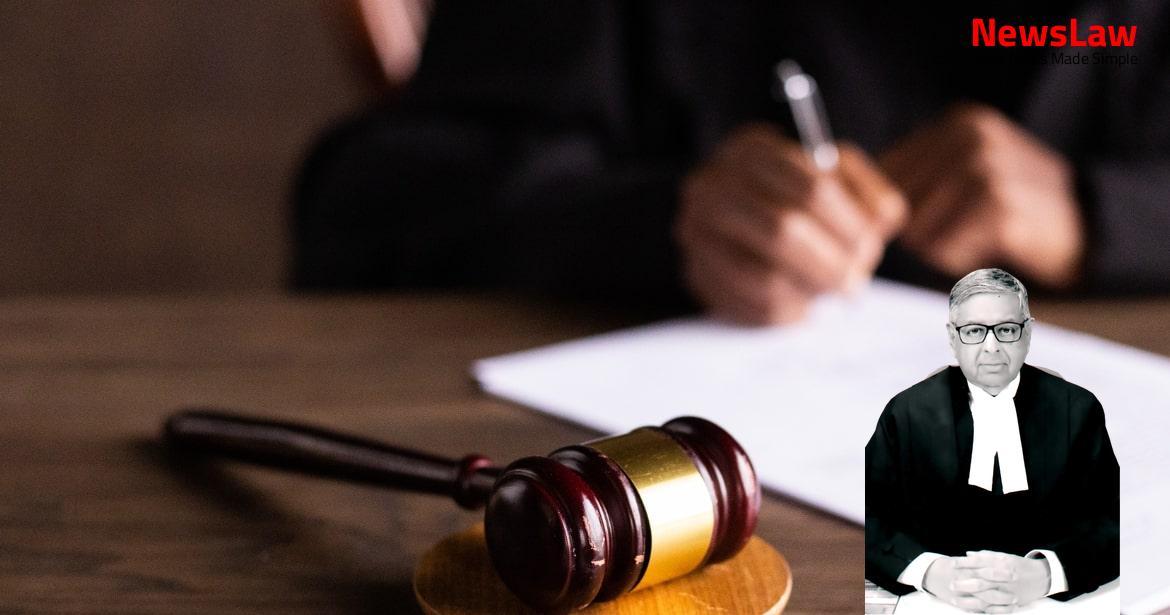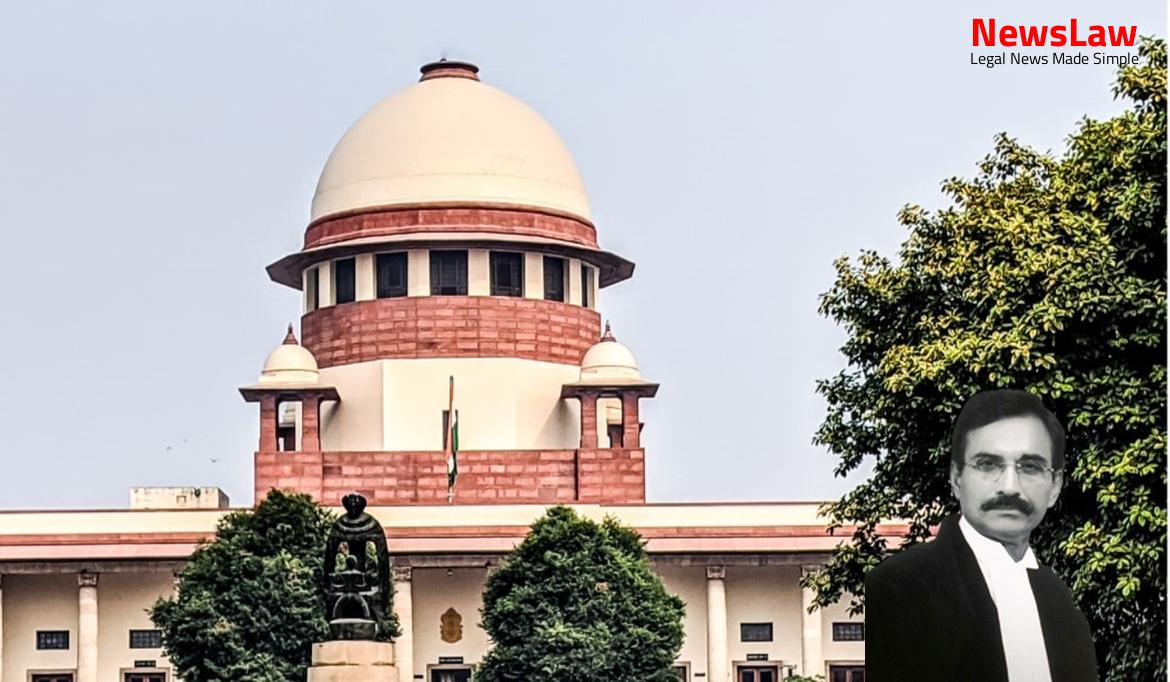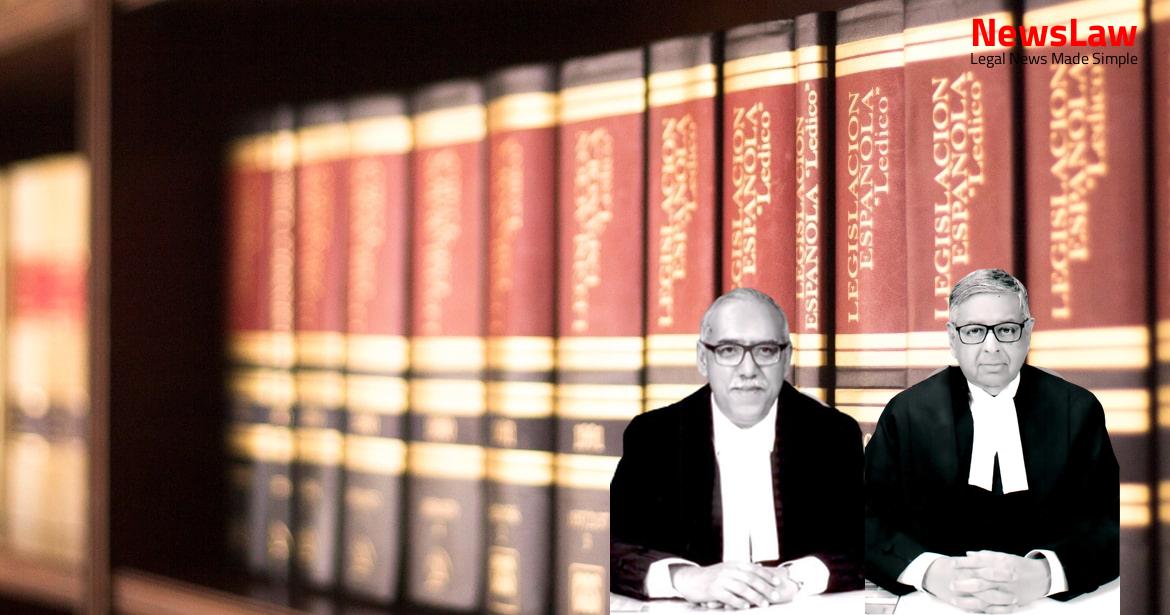Exploring the case involving the non-production of seized contraband material in court, the Supreme Court of India delivered a crucial judgment. The respondent challenged their conviction based on the absence of the material during trial proceedings. Dive into the legal intricacies and implications of this landmark decision.
Facts
- A team was constituted to intercept a white Tavera vehicle suspected of carrying contraband material, specifically poppy straw.
- The vehicle was stopped near a railway crossing, and upon search, seven bags of poppy husk weighing 223 kgs were found behind the driver’s seat.
- The driver and two occupants were identified as Sohan, Kanhaiya Lal, and Sahi Ram who were later arrested.
- Investigation revealed that the accused had no valid license for possession of the illegal substance.
- Charge sheet was filed under Section 8 read with 15 of the NDPS Act against the accused Sahi Ram, Sohan, and Kanhaiya Lal.
- The bags of poppy husk were found to be in commercial quantity, leading to their seizure and further legal action.
- The High Court passed a final order on 07.04.2016 in S.B. Criminal Appeal No.774 of 2015, upholding the conviction of the accused.
- The High Court noted that only two samples of the contraband material were produced and exhibited, while the entire material was not presented in court.
- Citing previous court decisions, including Noor Aga v. State of Punjab & Another, it was emphasized that failure to exhibit the entire contraband material in court can lead to the dismissal of evidence related to its seizure.
- The Special Judge convicted the respondent for an offense under the NDPS Act based on the available evidence, imposing a fine of Rs.1,50,000 and potential imprisonment in case of default.
- The High Court overturned the judgment due to the non-exhibition of the contraband material in court, leading to the rejection of the prosecution’s evidence regarding the alleged seizure.
- The respondent filed an appeal citing the absence of the contraband material as a ground for challenging the conviction.
- In a separate sentence, the respondent was sentenced to fifteen years of rigorous imprisonment in connection with the case.
- The High Court ultimately acquitted the respondent based on the non-production of the contraband material in court, deeming it fatal to the prosecution’s case.
Arguments
- The accused in the case submitted that the material objects, one kilogram charas and one kilogram ganja, allegedly seized were not produced during the trial.
- There was no evidence to prove that the samples sent to the FSL were actually drawn from the seized material.
- The High Court’s decision is to be considered in light of whether failure to produce the contraband material should lead to discarding the prosecution’s case.
- In the case of Jitendra & Another v. State of Madhya Pradesh, similar arguments were raised by the accused regarding the non-production of material objects.
Also Read: CRPF Act: Validity of Rule 27 for Compulsory Retirement – Case of Head Constable vs. CRPF
Analysis
- The prosecution failed to establish the connection between the seized substance and the forensic report.
- Non-production of contraband material before the Court was emphasized as grounds for acquittal.
- The samples taken for forensic examination were not deposited at the FSL on the date mentioned in the final report, raising doubts.
- Inconsistencies and delays in handling and reporting of the seized samples were noted, casting shadows on the evidence.
- Lack of explanation for the non-production of the seized contraband material raised doubts about the prosecution’s case.
- Panchnamas, which were the only evidence of seizure, were considered weak due to the turning of panch witnesses hostile.
- Absence of seized materials as material objects formed a significant gap in the prosecution’s evidence.
- The necessity of producing seized materials during trial for NDPS Act offenses was stressed for establishing a strong case.
- Failure to verify the contents of documents and non-vigilance during trial were pointed out as flaws in the prosecution’s case.
- Seizure witnesses turning hostile may not be a decisive factor.
- In the case of Vijay Pandey v. State of Uttar Pradesh, benefit extended due to lack of correlation between seized samples and tested samples.
- In the case of Vijay Jain v. State of Madhya Pradesh, accused submitted non-production of contraband goods.
- Physical evidence of samples taken from bulk amount of heroin was not produced in the Noor Aga case, leading to lack of proof of recovery as per Section 52-A of the Act.
- To prove seizure, intact samples taken from contraband material must be maintained.
- Seals on samples submitted for forensic examination should be intact.
- Forensic report should demonstrate potency, nature, and quality of contraband material.
- Essential ingredients of the offence must be proven based on the forensic material.
- High Court erred in extending acquittal benefit due to an unsustainable conclusion.
Also Read: DAMEPL vs. DMRC: Curative Petition and Arbitral Award Restoration
Decision
- Respondent directed to surrender within seven days.
- If failing to surrender, respondent to be taken into custody.
- Copies of the order to be sent to concerned CJM and Police Station for compliance.
- Conviction order of trial court restored by setting aside High Court’s view.
- Minimum sentence for the offence is 10 years of Rigorous Imprisonment.
- Appropriate sentence for the respondent is 10 years of Rigorous Imprisonment as substantive sentence.
Case Title: THE STATE OF RAJASTHAN Vs. SAHI RAM
Case Number: Crl.A. No.-001497-001497 / 2019



